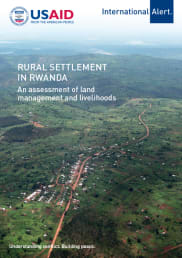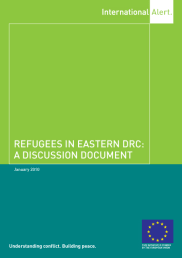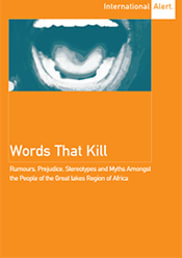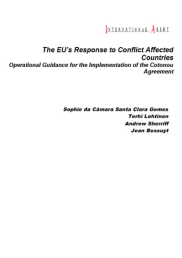Healing fractured lives: Reconciliation and reintegration in Rwanda
Taking the Fostering Reconciliation and Socio-Economic Reintegration in Rwanda project implemented by International Alert and its partners as its starting point, this paper describes and analyses the main features of reconciliation and reintegration efforts in Rwanda.
The target groups it considers are genocide survivors, former combatants, ex-prisoners and youth. While each of these groups has had different experiences of the genocide period and its aftermath, all have been affected by the violence psychologically, socially and economically.
The rebuilding of Rwandan society after the 1994 genocide against the Tutsis has demanded, and indeed still demands, considerable effort. The Rwandan state, the international community, civil society, the private sector, and others have all invested a great deal into finding ways for the country to recover from this unprecedented tragedy. Eighteen years after the genocide, it is time to learn the lessons of implemented programmes, and to try and envisage a way forward for those agencies currently involved in reconciliation and reintegration activities.
This paper describes six main characteristics and question points around reintegration efforts in Rwanda. It investigates the benefits and challenges of a multidisciplinary approach in reconciliation and reintegration programming. Such holistic approaches are now widely accepted as being extremely beneficial to affected populations and are increasingly used. However, they are challenging to implement, especially with regard to pooling necessary expertise and securing sustainable funding.






